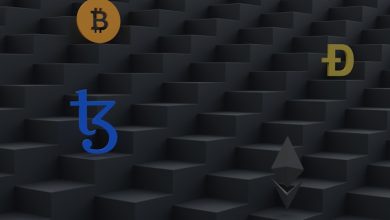How Blockchain Is Driving Innovation in the Gaming Industry

- Introduction to Blockchain and its impact on the Gaming Industry
- Benefits of using Blockchain technology in gaming
- Examples of successful Blockchain-based games
- Challenges and limitations of integrating Blockchain in gaming
- Future trends and opportunities for Blockchain in the gaming sector
- The role of NFTs in revolutionizing the gaming industry
Introduction to Blockchain and its impact on the Gaming Industry
One of the most significant advancements in the gaming industry in recent years is the integration of blockchain technology. This revolutionary technology has the potential to transform the way games are developed, played, and monetized. Blockchain, a decentralized and secure digital ledger, allows for transparent and tamper-proof record-keeping of transactions. This has profound implications for the gaming industry, as it enables players to truly own their in-game assets and ensures fairness in gameplay.
Through blockchain, players can buy, sell, and trade in-game assets with unprecedented security and ease. This opens up a whole new world of possibilities for gamers, who can now truly own the items they acquire in games. Additionally, blockchain technology allows for the creation of unique digital assets that cannot be replicated, adding a new level of rarity and value to in-game items.
Moreover, blockchain has the potential to revolutionize the way games are monetized. With the use of cryptocurrency and smart contracts, developers can create new revenue streams through in-game purchases and transactions. This not only benefits game developers but also empowers players by giving them more control over how they spend their money within games.
Overall, the impact of blockchain on the gaming industry is undeniable. It has the potential to change the way games are developed, played, and monetized, leading to a more transparent, fair, and player-centric gaming experience. As blockchain technology continues to evolve, we can expect to see even more innovations and disruptions in the gaming industry in the years to come.
Benefits of using Blockchain technology in gaming
Blockchain technology offers numerous benefits to the gaming industry, revolutionizing the way games are developed, distributed, and played. Some of the key advantages of using blockchain in gaming include:
- Enhanced Security: Blockchain technology provides a secure and transparent way to store and verify in-game assets, reducing the risk of fraud, hacking, and cheating.
- Decentralization: By leveraging blockchain, games can operate on a decentralized network, eliminating the need for central authorities and giving more control to players.
- Ownership of Assets: With blockchain, players truly own their in-game assets, as they are stored on the blockchain and cannot be duplicated or taken away by game developers.
- Interoperability: Blockchain allows for seamless transfer of assets between different games and platforms, enabling cross-game compatibility and creating a more interconnected gaming ecosystem.
- Transparency: The decentralized nature of blockchain ensures that all transactions and changes made within a game are visible to all players, promoting fairness and trust.
Overall, the integration of blockchain technology in gaming brings about a new era of innovation and possibilities, offering players a more secure, transparent, and rewarding gaming experience.
Examples of successful Blockchain-based games
Several Blockchain-based games have seen great success in recent years, showcasing the potential of this technology in the gaming industry. These games leverage the transparency, security, and decentralization offered by Blockchain to provide unique gaming experiences for players.
- One example of a successful Blockchain game is CryptoKitties, a game that allows players to collect, breed, and trade virtual cats using Ethereum-based smart contracts. The game became hugely popular upon its release in 2017, demonstrating the appeal of Blockchain-based collectibles.
- Another notable example is Axie Infinity, a game where players can collect, breed, and battle fantasy creatures called Axies. The game has gained a large following and has generated significant revenue through the sale of in-game items on the Blockchain.
- The Sandbox is a virtual world-building game that allows players to create, own, and monetize their gaming experiences using Blockchain technology. Players can buy, sell, and trade virtual assets in the game, providing new opportunities for creativity and entrepreneurship.
These examples highlight the diverse ways in which Blockchain is driving innovation in the gaming industry, offering new possibilities for developers and players alike. As the technology continues to evolve, we can expect to see even more exciting and successful Blockchain-based games in the future.
Challenges and limitations of integrating Blockchain in gaming
While integrating blockchain technology in the gaming industry has shown great promise, there are also challenges and limitations that need to be addressed for it to reach its full potential.
One of the main challenges is the scalability of blockchain networks. As more transactions are processed on the blockchain, the network can become congested, leading to slower processing times and higher fees. This can be a significant barrier to widespread adoption in the gaming industry, where speed and efficiency are crucial.
Another challenge is the regulatory environment surrounding blockchain technology. Different countries have varying regulations regarding cryptocurrencies and blockchain, which can create uncertainty for game developers looking to implement this technology. Navigating these regulations can be complex and time-consuming.
Security is also a major concern when it comes to integrating blockchain in gaming. While blockchain is known for its security features, there have been instances of hacking and fraud in the past. Ensuring the security of player data and in-game assets is crucial to earning the trust of gamers.
Interoperability is another limitation of integrating blockchain in gaming. Different blockchain networks may not be compatible with each other, making it difficult for games to interact across different platforms. This can limit the potential for in-game economies and cross-platform gameplay.
Despite these challenges and limitations, the gaming industry is actively exploring ways to overcome these obstacles and unlock the full potential of blockchain technology. By addressing scalability issues, navigating regulatory environments, enhancing security measures, and promoting interoperability, blockchain in gaming can revolutionize the industry and provide new and exciting experiences for gamers worldwide.
Future trends and opportunities for Blockchain in the gaming sector
As blockchain technology continues to evolve, the gaming sector is poised to benefit from a wide array of future trends and opportunities. One of the most prominent trends is the use of non-fungible tokens (NFTs) to represent in-game assets, allowing players to truly own and trade their digital items. This opens up a whole new world of possibilities for gamers, as they can now monetize their skills and investments in a way that was previously impossible.
Another exciting opportunity for blockchain in gaming is the concept of decentralized autonomous organizations (DAOs). These are community-run organizations that operate through smart contracts on the blockchain, allowing for transparent and democratic decision-making processes. In the gaming industry, DAOs could revolutionize how games are developed, funded, and governed, giving players more control over the games they love.
Furthermore, blockchain technology can enhance the security and integrity of online gaming experiences. By using blockchain for player authentication and asset ownership, developers can reduce fraud and ensure a fair playing field for all users. This increased trust in the system can attract more players to online games and foster a more vibrant gaming community.
The role of NFTs in revolutionizing the gaming industry
Non-fungible tokens (NFTs) have emerged as a game-changer in the gaming industry, offering unique digital assets that can be bought, sold, and traded on the blockchain. These NFTs provide gamers with true ownership of in-game items, characters, and skins, allowing them to transfer their assets across different games and platforms. This revolutionary technology has the potential to disrupt the traditional gaming economy by creating a decentralized marketplace for virtual goods.
By leveraging blockchain technology, NFTs enable developers to create rare and exclusive items that cannot be replicated or counterfeited. This scarcity factor adds value to in-game assets, making them more desirable to players. As a result, gaming companies are exploring new revenue streams through the sale of limited edition NFTs, creating a new level of engagement and monetization for their player base.
Moreover, NFTs open up endless possibilities for cross-game collaborations and interoperability, allowing gamers to use their virtual assets in multiple gaming universes. This seamless integration of assets across different games enhances the gaming experience and encourages player loyalty. Additionally, NFTs can be used to reward players for their achievements, creating a sense of accomplishment and recognition within the gaming community.



